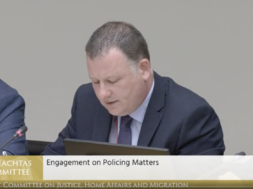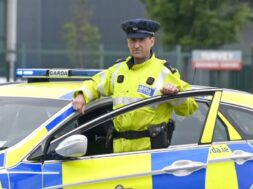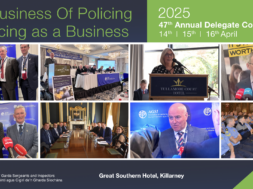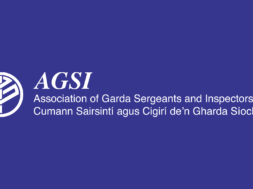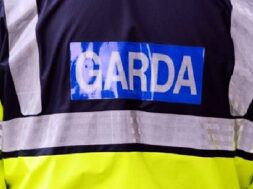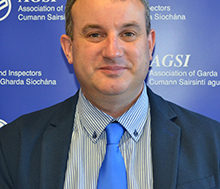
Minister for Justice Statements on Crime
Statements on Crime
Dáil Éireann
Minister Frances Fitzgerald’s Opening Remarks
5th May 2016
At the outset I must say that I very much welcome the opportunity that this debate provides to discuss the measures we’ve taken to tackle crime in all its forms and to look at how to improve our strategies to protect and support communities throughout the country.
Crime creates victims… and even if you are not the victim, crime can be disturbing. It can be frightening.
When a house on your road is burgled;
When a farm down the road is robbed;
When a gang-related shooting occurs in your neighbourhood;
It is all frightening.
But it doesn’t mean we have to accept it.
As Minister for Justice I have been committed to doing all we can as a state to disrupt and prevent crime… and to make our streets and our communities safer.
Gang-related crime
The evil and sinister cycle of gangland violence in our Capital is shocking and disturbing. The loss of life, including the life of those who played no part in gang related feuds, is intolerable.
This violent feud is unprecedented in its audacity. The gangs show no regard for public safety. The events we have seen are outrageous.
It should be noted that, prior to the current spate of violence; gang-related murders had fallen from 17 in 2010 to 3 last year. The murder rate overall was down 43% in the same period.
We must not let this record of improvement nor the safety and good name of our Capital City be dragged down by the violence and thuggery of these gangs.
Last week, An Taoiseach and I met with senior officers of An Garda Síochána. We were briefed on the significant progress being made in investigations into recent gang-related murders in the Dublin region.
I wish to commend Gardaí on their current policing operations in Dublin including those involving armed units. These operations include a range of responses from visible policing, the use of armed checkpoints and targeted and intelligence based operations; all aimed at disrupting and preventing incidents, as well as detecting and prosecuting those involved.
Work is also progressing in the establishment of an additional, dedicated 55-strong Armed Support unit for Dublin which I first announced plans for in February. I note that there has been an overwhelming response from Gardaí in terms of applications to the new unit.
I have assured An Garda Síochána that they have the full support of the Government in their efforts to disrupt gang-related crime and they will continue to access all resources necessary, including extensive overtime, to support them in delivering concentrated visible policing measures to tackle gang-related crime.
There is absolutely no question of any reduction in the resources or overtime being made available to Gardaí to counteract gang-related crime. However long it takes, and whatever resources are necessary, the State will take all measures open to it to bear down on the deadly activities of gangs.
Anti-gang laws
I would point out that An Garda Síochána gain from tough legislation to tackle organised crime enacted in 2006 and 2009. The then Ministers are to be commended for introducing that legislation.
These acts set out criminal offences and strong sanctions for ‘directing the activities of a criminal organisation’ and ‘participating in or contributing to certain activities of a criminal organisation’.
Since the enactment of the Criminal Justice (Amendment) Act 2009 on the 23rd of July 2009 to the 31st March 2016 inclusive, 276 arrests have been made under the legislation. To date eight individuals have been charged, six in relation to ‘participating or contributing to certain activities’ and two in relation to ‘directing the activities of a criminal organisation’. There have been two convictions to date under the Criminal Justice (Amendment) Act 2009, both under section 72 of the act, to participate in or contribute to certain activities.
Special Criminal Court
The Criminal Justice (Amendment) Act 2009 also brought in provisions to respond to the reality of intimidation by criminal gangs and were designed to tilt the balance firmly in favour of the rule of law and justice. I very much regret that some parties in this House continue to vote annually against the renewal of some these special provisions and furthermore, persist in calling for the abolition of the Special Criminal Court.
I recently signed the rules of court as the final step necessary to establish a second Special Criminal Court, so that we can start dealing with the current backlog of cases. Given the existence of violent criminals who will stop at nothing in pursuit of their evil objectives, including intimidation of jurors and witnesses, it is clear that the Special Criminal Court must remain as an essential element in our anti-crime infrastructure.
Criminal Assets Bureau
The CAB is playing its part in current operation aimed at tackling criminal gangs. The staff of the Bureau show wonderful commitment to the pursuit and seizure of the proceeds of crime as illustrated in the 2014 Annual Report I published in January.
Since its statutory inception in 1996 and up to the end of 2014 CAB:
· Has obtained interim orders (freezing orders) to the value of over 79 million Euro; over 18 million Sterling and 6.6 million US Dollars and Interlocutory Orders (final restraint orders) to the value of over 50 million Euro, 3 million Sterling and 6 million US Dollars
· Has demanded over €253 million in rates and interest, with over € 147 million collected; and
· Made social welfare savings of over €7.2 million and recoveries of almost €3.3 million.
Disrupting the Drugs Trade
Last year saw An Garda Síochána establish a dedicated new national Drugs & Organised Crime Bureau. During 2015, this new Bureau arrested 90 people for drug trafficking offences and made 51 significant seizures of controlled drugs with an estimated street value in excess of €24 million, including cocaine, heroin, herbal cannabis, cannabis resin and ecstasy. Tactical investigations by the Bureau have resulted in 238 detections and arrests for offences relating to possession with intent to supply.
Gun Crime
Recent high-profile gang-related crimes have also, regrettably, manifested themselves as gun crime. I must however note the substantial progress that has been made over the past 10-years in tackling gun crime in Ireland. The number of offences relating to the possession and discharge of a firearm has fallen by 52% from 745 in 2005 to 356 in 2015; while incidents of assault, burglary, robbery and murder involving a firearm are down 28% from 455 to 329.
This substantial reduction in gun-related crime is welcome and I commend An Garda Síochána on their work in reducing gun crime in Ireland. But one crime involving a gun is still one too many. We will continue to do all we can to support Gardaí in tackling gun-related crime and we will not let the recent upsurge in violence deter us from this goal.
Broader investment in An Garda Síochána.
Now is a time for expansion for An Garda Síochána. The last Government ended the moratorium on Garda recruitment. We reopened Garda College in Templemore to new recruits.
Since September 2014, we have provided for the recruitment of 1,150 new Gardaí, including 600 this year. As Minister, I’m have been consistent in my commitment towards ongoing seamless recruitment and subject to agreement being reached on the formation of a new Government, my party has agreed to commit to increasing the strength of An Garda Síochána to 15,000.
Recruitment is just the beginning. Gardaí must be mobile and visible and responsive – in the community – not stuck behind desks in stations. We need Gardaí policing our road network and tackling mobile criminal gangs. That means investing in vehicles.
The last Government has invested more than €34 million to purchase over 1,300 new Garda vehicles since 2012. 720 new vehicles are coming on stream since the start of last year. The age profile of the Garda fleet has improved significantly. The percentage of vehicles under 2 years old has now increased to over 35% (up from 7%) and will continue to increase. Under the Capital Plan 2016-2021 we’re going to invest at least €46 million in 1,700 more Garda vehicles.
We have invested in new night-time surveillance equipment for the Garda Air Support Unit, to track and disrupt burglars and criminal gangs from the air. We are investing in new or refurbished Garda stations in 32 locations nationwide. We have committed an additional €205 million in new technology and ICT, to equip An Garda Síochána for the digital era and to cut-down on paperwork so Gardaí can spend more time on the beat, in the community. We are committed to expanding Garda CCTV and automatic number plate recognition technology to help identify and respond to the criminal gangs using our roads and motorways.
Operation Thor
In October, An Garda Síochána launched Operation Thor, a national anti-crime and anti-burglary strategy.
Operation Thor delivers on increased investment in policing by the outgoing Government to tackle burglaries and related crime. In addition I provided €5 million for additional overtime for this operation.
Operation Thor is now providing a concerted drive against those involved in burglary crime, including the highly mobile criminal gangs who have targeted communities in many rural areas and caused so much damage and distress in the process. The concentrated Garda activity under Operation Thor has included more than 16,000 anti-crime patrols and in the order of 20,000 targeted checkpoints nationwide. There have also been in the region of 900 arrests covering a range of offences which, in addition to burglary have included handling stolen property, possession of firearms and drugs offences.
Community Partnership
Garda engagement with local communities is also being strengthened and – for 2016 – I doubled the funding available for crime prevention measures supported by my Department. These include Crimestoppers and the very valuable Community Alert programme which has a particular focus on on Rural Communities and is also a key component in the very successful Garda Text Alert Scheme. Text Alert is now available in every Garda Division, urban and rural, with over 700 local groups involving in excess of 130,000 subscribers
Burglary Statistics
CSO figures published last month show an overall reduction in burglary of 5% for the twelve month period ending on 31 December 2015. Most significantly there has been a very significant reduction during the last quarter of the year. In fact, the figures for the last quarter of 2015 indicate a reduction of 26.2% compared to the same period in 2014. Furthermore, the CSO figures refer to the period October to December 2015 and Operation Thor commenced on 1 November 2015.
New legislation
The implementation of Operation Thor has been aided by the enactment of the Criminal Justice (Burglary of a Dwelling) Act. This legislation means that tougher sentences can be handed-down to repeat burglars, including consecutive sentences for previous offenders being prosecuted on multiples counts. In addition, the new Burglary Act made it easier for Courts to refuse bail for repeat burglars.
Next, we will enact our new Bail Bill to protect the public against crimes committed by offenders out on bail. This bill will allow for refusal of bail for repeat serious offenders and will strengthen Garda powers to deal with breaches of bail. It will also include new provisions to allow for electronic tagging of those on bail, where requested by Gardaí, to reduce re-offending.
Review of stations and boundaries
I am conscious that many of the measures I have outlined respond to the deep concerns expressed by people in Rural Ireland about the impact of crime on their communities. As Minister, I have met and listened to many people to hear their concerns at first hand, and I believe that there must be an ongoing dialogue with to ensure that we continue to strengthen the level of protection and support for rural communities.
I am firm in my belief that tackling crime is not just about the bricks-and-mortar of Garda stations. It is as much, if not more, about having effective, mobile patrols covering rural areas providing both a regular, visible presence and a rapid response when required. Central to achieving this is out ongoing investment in people, vehicles and ICT.
However, as far as stations are concerned, I accept the very real concerns that exist in rural communities in relation to the location and geographical distribution of station as well as concerns relating to potential inefficiencies in Garda district boundaries. Of course, these can also be issues of concern in growing urban and suburban areas. My party as therefore agreed, subject to agreement being reached on the formation of a new Government, to mandate the Policing Authority to review the boundaries of Garda districts and the dispersement of stations.
Conclusion
I wish to conclude by acknowledging the dedicated and selfless work all members of An Garda Síochána who oppose criminals and support and defend local communities. While the service has not been without its difficulties in recent times I believe it still has the widespread appreciation and support of the vast majority of our people.
The Government’s focus over the past year has been to put in place concrete measures to ensure and enhance ongoing public confidence in policing in Ireland, while continuing to support the men and women of An Garda Síochána in their day-to-day work of keeping our communities and country safe.

